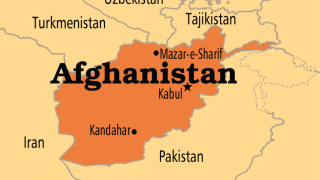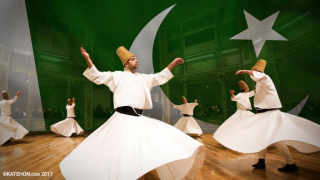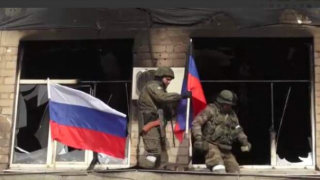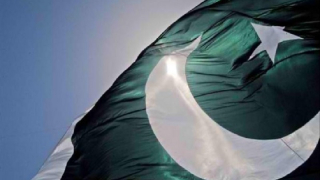Putin-IK Meet, New Vistas in Russian-Pakistan Relations
10.06.2019
Our friend and regular commentator on Pakistan, Andrew Korybko, while writing for Eurasiafuture on 9th Jun has projected the meeting between PM Imran Khan and President Putin in a very balanced manner. While he has cautioned about drawing disproportionate conclusions from this maiden meet, he has drawn some basic conclusions. Korybko feels that this meet may be followed by a formal invitation to President Putin for a visit to Pakistan. The geostrategic context in which that invitation might be presented increases the odds that it would be accepted, especially if the two leaders ultimately clinch a significant enough deal with one another to warrant President Putin’s time in becoming the first Russian leader to ever visit Pakistan. His country is engaged in a fast-moving “Return to South Asia“, after all, and Pakistan is veritably the global pivot state of the emerging Multipolar World Order, so there are already enough reasons as it is for him to accept the invitation and visit Russia’s new strategic partner, but the Indian factor looms large over their bilateral relations even though the intensification of ties between Moscow and Islamabad isn’t aimed against any third party.
Sine I had been following President Putin’s concept of a Eurasian dream, I thought I will add my two cents to this important meet. While taking help from my previous articles on Eurasia and President Putin (even at the cost of repetition), I have tried to develop a context which could give us some food for thought and generate a discussion in Russian and Pakistani media.
The on-going global crises and imploding MENA (Middle East and North Africa) region have clearly demonstrated that post-Cold War global order is undergoing a strategic change and uni-polarity has brought more misery for the humankind than the good old bipolar world. US’ ability to shape the geostrategic global environment has heavily rested on extensive and disproportionate use of military power. However; the chaotic world and human suffering in most of regions of conflict suggest that it’s the lack or failure of leadership which has caused this chaos. Looking around the so called free world, we find the United Sates, Britannia and the European powerhouse of Germany as well as the torch bearer of liberty, France, all grappling with the challenge of stagnating leadership or statesmanship.
By the end of 20th century, the West intoxicated by victory in Cold War trumpeted the themes of End of History and Clash of Civilizations and tried to create cleavages amongst cultures and civilizations, resulting into further chaos. While we thought that humanity had reached a stage where larger understanding between different faiths and cultures will result into a more balanced and accommodative global order; the holders of these ideals in the west failed on many accounts and treated the globe as a big market place where one currency and one culture was to prevail, the culture of McWorld.
The exorbitant expenditure of trillion of dollars to feed fruitless wars in the Middle East, West Asia and even Ukraine did not bring democracy and freedom to the people of Iraq, Syria, Libya, Afghanistan and Ukraine. The global chaos in last three decades and continuation of these hybrid wars (which are now morphing into trade wars) cannot resolve issues and have created miseries for almost 300 million people of West Asia, MENA and Eastern Europe.
If we look around we find a couple of states and leaders with ability and motivation to stem the tide of this global chaos, only few qualify to provide an alternative leadership at global level; however one leader stands tall in this group of few, President Vladimir Vladimirovich Putin. President Putin is credited with taking out Russia from the demoralizing days of post- Cold War period into a thriving economy. He stabilized the Russian economy and re-established its prestige in the comity of nations.
Being mindful of need for diversification, President Putin has led the diversification; his year end message for 2018 to Russian and international audience is very clear, as reported by TASS news agency on 26 Dec, he said “We must seriously accelerate the pace of industrial development, strengthen our own scientific and technological base, promote the local sites of production and the development of new markets by Russian companies at home and abroad”.
Putin has also displayed astuteness and dexterity in handling the Ukrainian crises and happenings in the Near Abroad, even Syria has seen regaining stability due to Russian ability to help turn the tide against ISIS and other forces of disintegration.
The Eurasian Enterprise; President Putin has been a staunch exponent of Eurasian Enterprise and a multipolar world, he has shifted his focus to a greater strategic partnership and collective security within the Eurasian framework. He has also supported the Belt and Road initiative of China and looks forward to expansion of North South corridor to connect to warm waters of Afro Asian Ocean.
The Anglophone logic bubble and its pitfalls: For people in our part of the world and especially in Pakistan, the word ‘International Community’ means essentially the West, even our intellectual debates in media and academia are dominated by western schools of thought. Despite Russia’s special geostrategic position in Eurasia and Pakistan’s within SCO, we pay less attention to the ‘rising rest’ including Russia. The CNN and BBC effect further augmented by Al Jezeera effect (all being the same) has almost blinded Pakistani public from what is happening in larger Eurasia.
When PM Imran Khan meets President Putin, Pakistan needs to at least allow a balanced debate and study the emerging Russia under the dynamic leadership of President Putin as an alternative leadership model of global leadership. Pakistan’s geostrategic location was described by Korybko as a Zipper of Civilizations and a Global Pivot state. No wonder the Eurasian dream can be full filled by including Pakistan into the larger equation. Whether it be the peace in Afghanistan, war against terror or strategic initiatives of regional connectivity (BR and CPEC), all roads seems to be passing through Islamabad.
Another area of concern in Eurasia is the Indo- Pacific, the emerging Quad (India, US, Australia and Japan) and its likely expansion to include France and some South East Asian states has started impinging upon the very idea of Eurasian brotherhood. Indo- Pacific alliance could become a destabilizing factor, especially in the maritime domain with aims of strangulating Chines and even Russian interests and erecting barriers within Eurasia. SCO has emerged as a binding forum between some leading Eurasian states and has brought countries like India and Pakistan together. SCO has the potential to address burning issue and resolve disputes through dialogue. Contrarily the Indo Pacific alliance and militarization of two large oceans could pave way for denting the SCO objectives and diluting the basic spirit of Eurasia. Is India going to ride two boats with different destinations or become an active member of Eurasian brotherhood? This may be a million dollars question, requiring soul searching by SCO members.
While hoping for a new dawn of Eurasian brotherhood, Pakistan needs to develop a better understanding of the Russian spirit. As I suggested earlier, Pakistan should establish a Eurasia Study Chair in all major universities to let the academia and our young generation study the rising economies in that region.
We also need to introduce RT and Pravda viewership and readership in Pakistan so that people get a balanced view of what is happening in the world outside the prism of CNN and BBC.
Russo Pak relations have to move beyond military cooperation and morph into a more robust and strong partnership for peace and regional connectivity, within the larger Eurasian context. It is heartening to note that Russia has led the Afghan peace process and has been able to bring regional states and actors together in Moscow and all stake holders are not only listening to Russia but also appreciating role played by President Putin and his team in providing a platform for sustained dialogue.
Pakistan has learnt that her diplomatic and economic relation have to follow the concept of multi-alignment. While Pakistan has maintained strategic partnership with China since two decades, its growing ties with the Russian federation should be seen through the prism of multi-alignment. Russia may join indirectly the CPEC venture, through actively using the Shanghai Cooperation Organization platform; after all, CPEC has the potential to directly and indirectly connect and benefit more than sixty countries of Eurasia and Africa.
As global connectivity brings down barriers of language, distance and culture, there could be many areas of cooperation between Pakistan and Russia, these could include energy sector, information technology, agriculture, health sector, security and defence and cultural exchange.
I will end the article with a quote from one of my previous articles on President Putin, and ask PM Imran Khan to reflect:
If Mr Putin could take Russia out of crises and back into a prestigious position in Eurasia within a decade, we can learn something from his leadership skills and study his persona as an alternative model of global leadership, after all what has Western leadership accomplished through their leadership role at global level ,chaos and further chaos.








